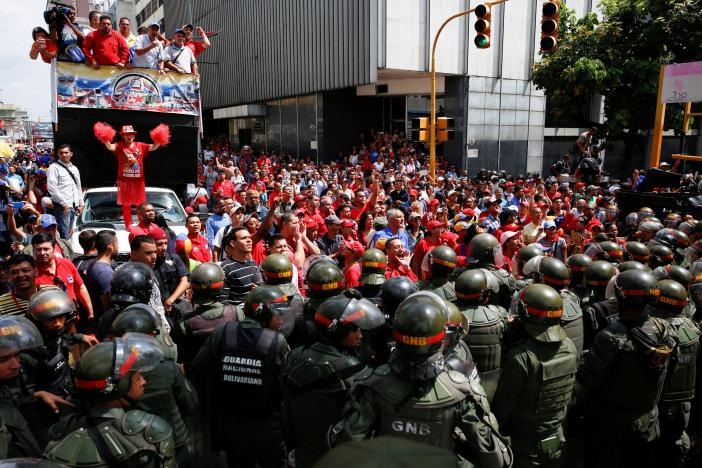Caracas- The recent strikes in Venezuela have reflected the country’s escalating political conflict accompanied with economic crises that resulted in the highest inflation rate worldwide according to the World Bank and a shortage of hard currency, leading to wide-scope drop of medicine and food supplies.
The opposition, which called for a general strike for 12 hours on Friday, holds President Nicolas Maduro responsible for these crises.
Venezuela is going through one of the worst economic crises throughout its history. The country was hugely influenced by the drop in oil prices, knowing that oil provides 96% of hard currency. Inflation seems to be uncontrollable and is further expected to rise 475% this year, based on the International Monetary Fund (IMF) forecasts.
Maduro pledged in a televised speech to increase minimum wages up to 40%– this increase although seems remarkable; it doesn’t really counts compared to the inflation in Venezuela.
The government vowed to take over any companies heeding the strike, sending inspectors to ensure they were open. Maduro also threatened to refuge to the army regrading institutions that take part in this movement.
Opposition Leader Henrique Capriles said that strikes will be spurred in Caracas next week in case the democratic regime in Venezuela was not regained. Capriles hinted that “the target this time will be Miraflores Palace.”
Although the number of protestors who showed up remains unspecific, namely in Caracas, the main reason behind renewal of protests is the election board’s decision to stop the referendum over Maduro remaining in presidency.
The opposition demands resignation of Maduro who was elected for presidential period 2013-2019, considering him responsible for the economic crisis. Subsequently, the Venezuelan President reiterated his call for defying the parliamentary coup.
